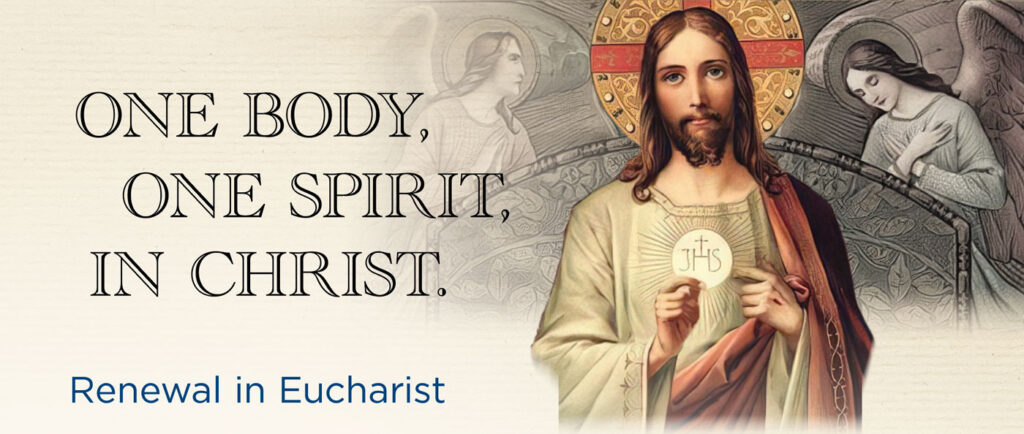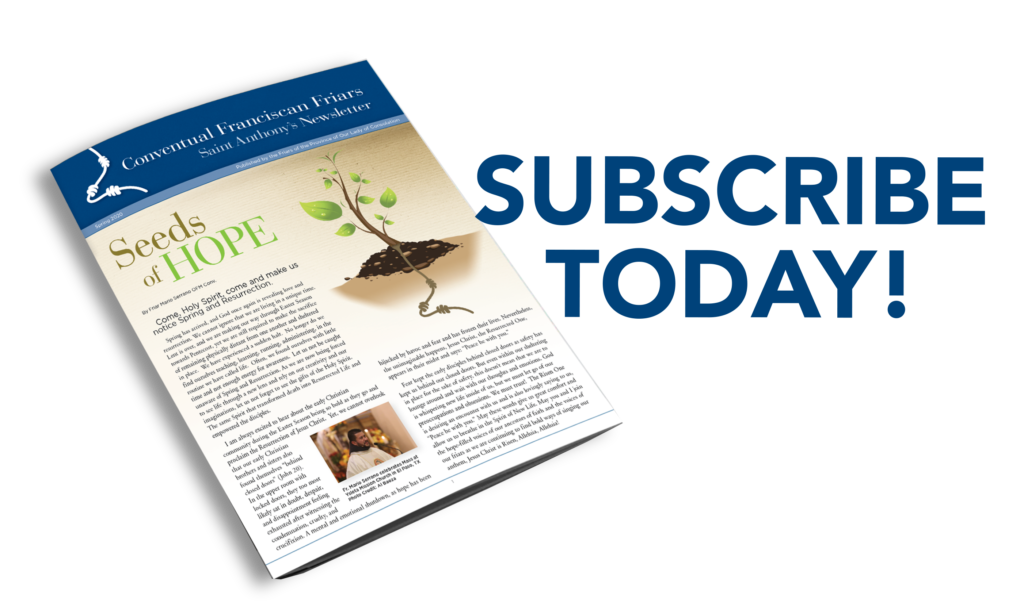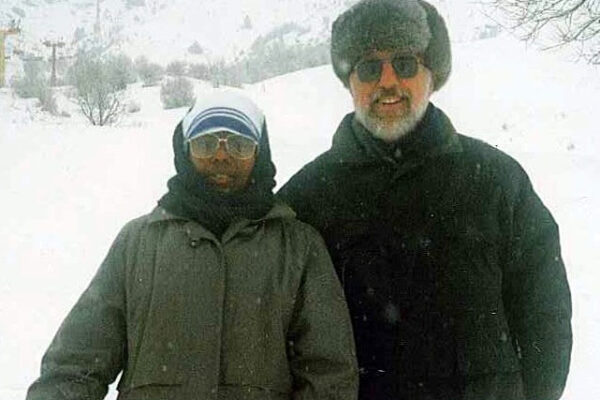
By friar Wayne Hellmann, OFM Conv.
Have you ever participated in the Mass within another rite of the Catholic Church other than the Latin or Roman Rite, the rite most familiar to us? If not, I suggest you seek out a Eucharistic celebration in one of the many diverse rites of the Mass as found within the Catholic Church, namely within the Eastern Churches (e. g. Greek, Syriac, Maronite, etc.). You will find differences, even refreshing ones.
For example, a few months ago I had the opportunity to go to Sunday Mass with Catholic friends in a Ukrainian Catholic Church. Of course, the basic structure is the same: Liturgy of the Word, Liturgy of the Eucharist, Communion Rite, and Dismissal. One difference, striking for Roman Catholics, is the lack of the elevation of the consecrated bread and wine. There is simply the one continuous Eucharistic prayer of thanksgiving and praise.
However, during the entirety of the Eucharistic Prayer, a server on each side of the altar gently and reverently waved a fan stretched out on two poles over the altar. This simple movement of air signifies that the Eucharist is about the outpouring of the Holy Spirit over the gifts of bread and wine and over the assembled community itself.
This experience reminded me of one of the official opening greetings at the beginning of Mass within the Roman Rite: “The grace of our Lord Jesus Christ, love of God the Father, and communion of the Holy Spirit be with you (2 Cor. 13;13).” Yes, the grace (or gift) of Jesus in his obedient Passover through his suffering, death and resurrection to the glory of the Father is ever present, always revealing to us the love of God and Father. However, both point toward and draw us into the ultimate purpose and gift of the Eucharist: “the communion of the Holy Spirit.”
The finality and purpose of the Eucharistic presence of the Body and Blood of Jesus is to draw us “into the communion of the Holy Spirit.” Through this sacrament of His Body and Blood, He mediates to us the gift of Holy Spirit. Within the Eucharistic Prayer is that not for what we pray: “Humbly we pray that, partaking of the Body and Blood of Christ, we may be gathered into one by the Holy Spirit?” In the Eucharistic experience, the Father Creator is present through the created gifts of bread and wine. The Son is present in the offering of Himself, body and blood to the Father, and He thereby mediates and sends the gift of the Holy Spirit. Nourished by His Body and Blood we are to be “filled with His Holy Spirit.”
The Holy Spirit initially draws us together to hear the inspired Word. It is the Holy Spirit that changes bread and wine into the Body and Blood of Christ, and ultimately as mediated through His flesh and blood, He pours out that same Spirit to transform us into Himself, into His Mystical Body, the Church. Thus, it is within the “communion of the Holy Spirit” that the goal of the Eucharist is achieved, “that we may become one Body and one Spirit in Christ.”
It is not, therefore, as single individuals that we gather to celebrate the Mass. Rather we are “gathered into one by the Holy Spirit.” Or, as St. Bonaventure would put it: In the Mass it is not we who consume the Body of Christ, rather it is we who are consumed through “communion in the Spirit” into his very Body and Blood, ultimately to be broken and poured out for those beyond ourselves. “In the communion of the Holy Spirit” there is no place for the prominent destructive cult of our time, the cult of the “autonomous self.” At the end of Mass, together we are sent forth. Renewed and reconnected in the freedom and power of the Spirit, our mission becomes the same as that of the Holy Spirit: to overcome all division and draw all into the unity with the Father as mediated through and in Christ.
Perhaps more attention to the gentle movement of the Spirit in every aspect of the Eucharist, as experienced during the Catholic Mass in the Ukrainian Rite would be helpful for us Roman Rite Catholics. To focus only on the presence of Christ, however that presence may be described, misses the richness and the fullness of why we are called to and sent forth in the “communion of the Holy Spirit.”






